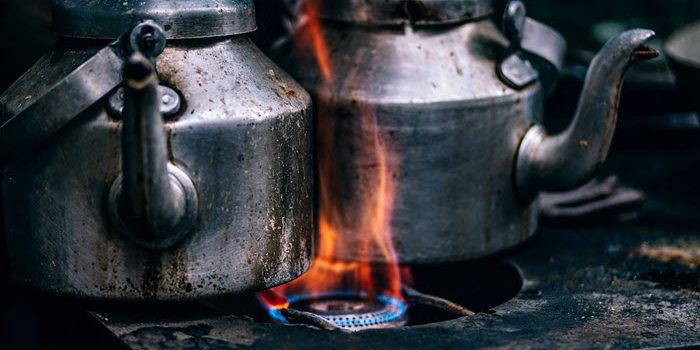
Your kitchen is a hub of daily activity. It’s a place to nourish your family, entertain friends and even retreat for a secret midnight snack. The kitchen is the heart of any home, which is why a kitchen fire can be especially devastating. Even a small fire has the potential to cause significant damage and interrupt your daily routine. The most important thing during a kitchen fire is to protect yourself and those who depend on you. Plan and practice your fire safety plan regularly. After a kitchen fire is contained, use these tips from the experts at ServiceMaster Tri-Cities to stay safe, clean up and get the heart of your home healthy again.
- Take Precautions
Even small kitchen fires can have unforeseen consequences. Follow advice from the Federal Emergency Management Agency (FEMA) (PDF) to stay safe. Even if the damage doesn’t look severe, you should have professionals check for damages in areas you can’t readily see, including the electrical system, gas lines and ductwork. Once the fire department or safety inspector confirms it’s safe to enter your kitchen, wear gloves, masks, pants, long sleeves and boots to prevent injuries and the transfer of grease, smoke, ash or soot.
- Assess the Damage
Before moving or cleaning any items, take pictures of all the damage. Capture details and keep lists of anything impacted to support any insurance claims you make. Call your insurance company, and file your claim immediately. Your insurance provider may want to send an agent out to assess the cost of necessary repairs. Avoid cleaning or repairing damages until your insurance company completes its evaluation and says you can move forward.
- Tackle the Cleaning
Expansive or challenging fire damage should be handled by professionals who have the tools, processes and experience to restore your kitchen safely, quickly and effectively. That said, there are some ways to clean up after a kitchen fire that are less likely to make the problem worse or put you in harm’s way. You should:
- Always wear protective gear when cleaning up after a fire
- Avoid eating or drinking around hazardous materials
- Open windows to ventilate the area and let smoke and odors escape
- Remove salvageable, valuable and meaningful items first
- Throw out debris and un-salvageable items
- Remove kitchen cabinets and drawers to access the interior space
- Wipe down stainless steel appliances and other metallic surfaces
- Clean plastic and painted surfaces using an alkaline (soap-free) detergent
- Change your air filters
Cleaning requirements will vary depending on the source and severity of the fire. Smoke and soot particles that pass through your vents can attach to fabrics and surfaces anywhere in your home – not just in the kitchen. If sprinklers went off during the fire, you’ll also need to mitigate water damage to prevent mold growth. If you aren’t sure what to consider or need help cleaning up after a kitchen fire, call the professionals at ServiceMaster Tri-Cities (989) 200-5126.

